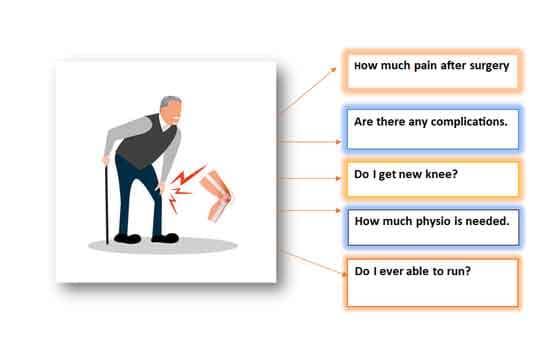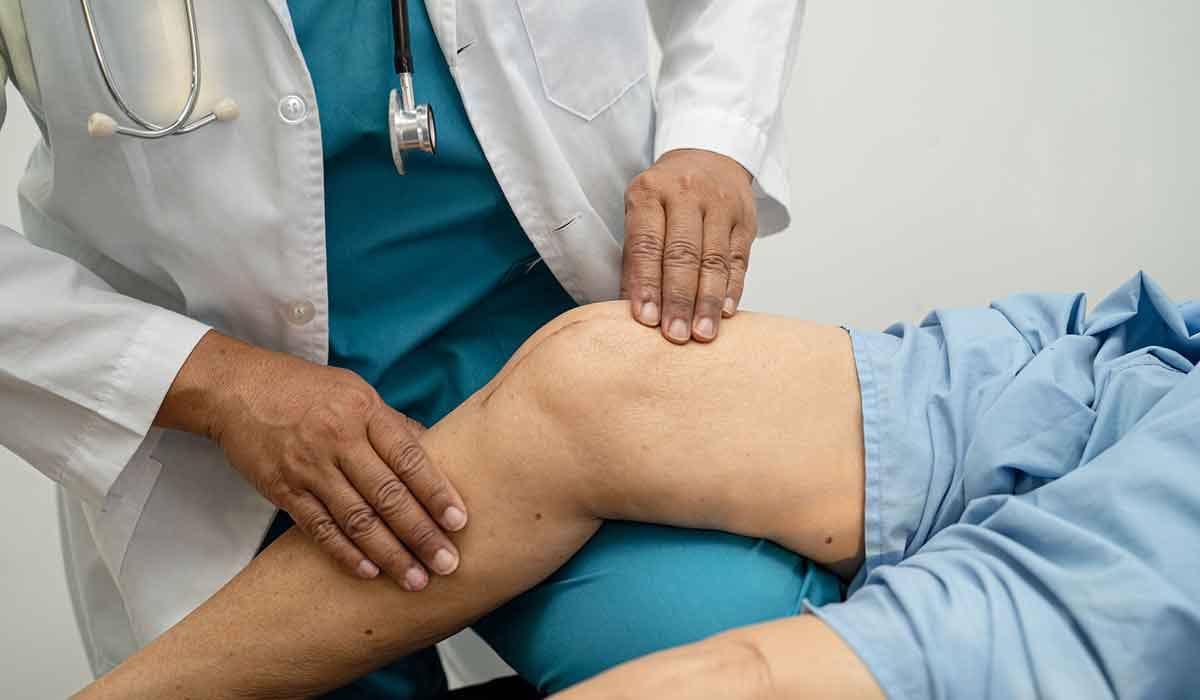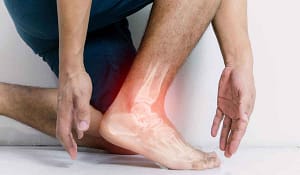knee after knee replacement surgery

knee replacement surgery is nowadays the most widely accepted technique to cure knee osteoarthritis. It is one of the most advanced orthopaedic procedures. It is now successfully used to improve quality of life and add mobility to the joints, which reduced its functioning due to degeneration of the joints. For any person undergoing knee replacement surgery, there is always an important role of post-rehabilitation. A common man has a lot of curiosity about the surgery and its post-care. Few most important questions a patient might be confused.
How much pain after surgery
After knee surgery, each patient’s experience with pain can be different. It depends on factors like the type of surgery, the person’s pain tolerance, and overall health. Generally, there will be some pain after the surgery, but it can be managed with medication prescribed by the surgeon.
Immediately after the surgery, patients may experience moderate to severe pain. There might be swelling, bruising, and stiffness in the knee area for the first few days after surgery. However, most patients can manage their pain with prescribed pain medication and physical therapy.
As the patient continues to recover, they may experience some discomfort and pain during physical therapy sessions and as they start to regain mobility in the knee joint. With proper pain management and commitment to rehabilitation, most patients can recover successfully from knee surgery and resume their normal activities with little to no pain.
Are there any complications?

Managing complications after knee surgery can be challenging, but there are some steps that can be taken to help reduce the risks and improve outcomes.
Follow the post-operative instructions provided by your surgeon: After your knee surgery, your surgeon will provide you with detailed instructions on how to care for your knee during the recovery period.
Keep the wound clean and dry: It’s important to keep the incision site clean and dry to prevent infection. Follow your surgeon’s instructions for wound care and avoid getting the wound wet until it has healed.
Manage pain and swelling: Pain and swelling are common after knee surgery, but they can also lead to complications if not managed properly. Follow your surgeon’s instructions for pain management and ice your knee regularly to reduce swelling.
Exercise and physical therapy: Physical therapy is an important part of the recovery process after knee surgery. Follow your physical therapist’s instructions for exercises and activities to help improve your range of motion and strength.
Watch for signs of complications: While complications are rare, it’s important to watch for signs of infection, blood clots, or other complications. Contact your surgeon if you experience symptoms such as fever, severe pain, or difficulty breathing.
Attend follow-up appointments: Follow-up appointments with your surgeon and physical therapist are important to monitor your progress and ensure that you are on track with your recovery. Attend all scheduled appointments and communicate any concerns or questions with your healthcare team.
Do I need to do exercise?
Yes, exercise and physical therapy are important for a successful recovery after knee surgery. Your doctor will likely prescribe specific exercises to help you regain strength and range of motion in your knee. These exercises may include simple movements such as bending and straightening your knee, as well as more advanced exercises to improve balance, stability, and endurance.
How much physiotherapy is needed?
A physical therapist can help you develop a personalized exercise plan that is tailored to your specific needs and goals. They can also monitor your progress and provide guidance on how to safely increase the intensity and duration of your exercises over time.
Regular exercise and physical therapy can help speed up your recovery, reduce pain and inflammation, and prevent complications such as blood clots and joint stiffness. It is important to follow your doctor’s and physical therapist’s instructions closely and to be patient with your recovery process.
Do I ever able to run?

While running can be a great way to stay active and healthy, it is important to take certain precautions after knee replacement surgery. Initially, running, or high-impact activities should be avoided until your doctor clears you for these activities.
It is important to follow your doctor’s instructions and physical therapy plan closely to ensure a safe recovery. Your doctor may recommend low-impact activities such as walking, swimming, or cycling as you begin to regain strength and mobility in your knee.
If your doctor determines that you are ready to start running, they will likely recommend a gradual return to the running program. This may involve starting with short intervals of running, followed by periods of walking or rest. Over time, you can gradually increase the duration and intensity of your running workouts.
It is important to listen to your body and stop running if you experience pain or discomfort in your knee. Running can put stress on your knee joint, so it is important to wear proper footwear, warm up before exercise, and maintain good running form to prevent injury.
Ultimately, the decision to run after knee replacement surgery should be made in consultation with your doctor and physical therapist, considering your individual health and fitness goals.
Meet a young and experienced joint replacement surgeon.
Dr. Gagandeep Gupta is a knee replacement surgeon. He specializes in joint replacement surgeries, particularly knee replacement surgeries. Dr. Gupta has vast experience in performing minimally invasive knee replacement surgeries, which involve smaller incisions, less pain and scarring, and faster recovery times.
He is known for his patient-centric approach and personalized treatment plans, which are tailored to the individual needs of each patient. Dr. Gupta is committed to providing his patients with the highest level of care and ensuring that they have a successful and speedy recovery. In addition to knee replacement surgeries, Dr. Gupta also provides a range of other services, including joint preservation surgery, arthroscopy, and sports injury management. He uses the latest technology and techniques to ensure that his patients receive the best possible treatment.
Overall, Dr Gagandeep Gupta is a highly skilled and experienced knee replacement surgeon. who provides his patients with the highest level of care and treatment. Visit him www.drgaganorthosurgery.com




